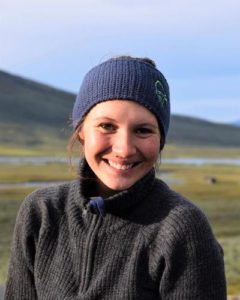Who am I?
I am Siri from Norway. I did my master, and am now doing my PhD, at the University of Bergen. Thanks to being involved in some amazing projects, I have during the last years visited and worked with great scientist around in Europe, including Poland, Denmark and Frans Josef Land (Russian Arctic). I moved to Bergen in 2011 to become a marine biologist, but after doing a field course where I was introduced to terrestrial ecology and learned to identify Norwegian plants, my interest shifted. I studied plant species range shifts in Scandinavian mountains for my master and am now studying coastal heathlands and how they respond to climate changes. I am very interested in how human disturbances affect nature, from shaping landscapes to influencing species interactions.
Why am I going to Peru?
The thing I really love about the functional traits course is that it offers training in the whole process of trait-based ecological research methodology, from planning an experiment and collecting data, to data managing, analysing and interpreting, and communication of results. I aim to get a good understanding of trait-based ecology and to be confident on how to use it as a research tool. If I meet this goal, I should be able to successfully integrate trait-based ecology in my own research.
We are using part of a former field experiment for data collection in this course. The former field experiment used experimental burning and I am very excited about exploring how past disturbance can be studied through trait-based ecological methods. For my PhD I study coastal heathlands, a landscape that are managed by burning and has a long land-use history, and I find the parallels between my own experiment and the Peruvian field experiment very exciting. I also look forward to meeting students and teachers from other parts of the world and learn about their research.
What do I think that other people think about climate change?
Most people in Norway accept that climate changes are happening and that they are mainly human caused. Also, the government is considering the challenges of climate change, even if it can be debated if they are doing enough (Norway is an oil nation). People that don’t believe that climate change is happening, or that deny that it is human caused, are present in the public debate, but not by big numbers.
I think that most people in Peru accept human caused global warming. There might be some differences between different groups, such as stakeholders, farmers and people working in the tourism industry. In Norway, focus on climate change is often globally, where the global consequences of climate change are more communicated than the national consequences. I expect that the Peruvian people will be more focused on the local and national consequences than the global consequences.

Wow, the perceptions of climate change in Norway are certainly different than those in the US!